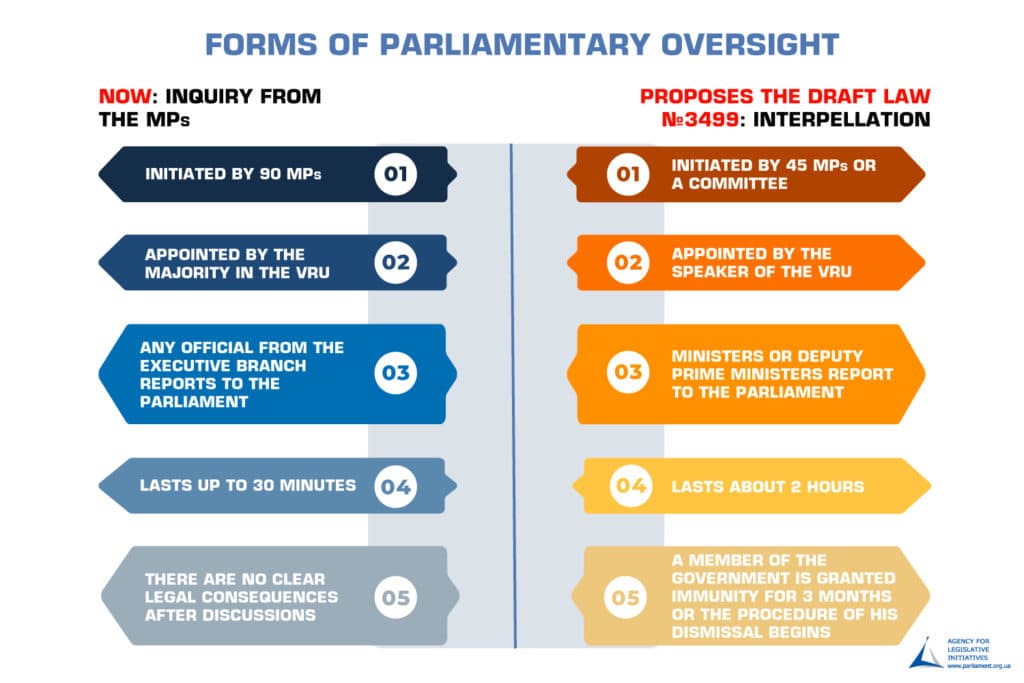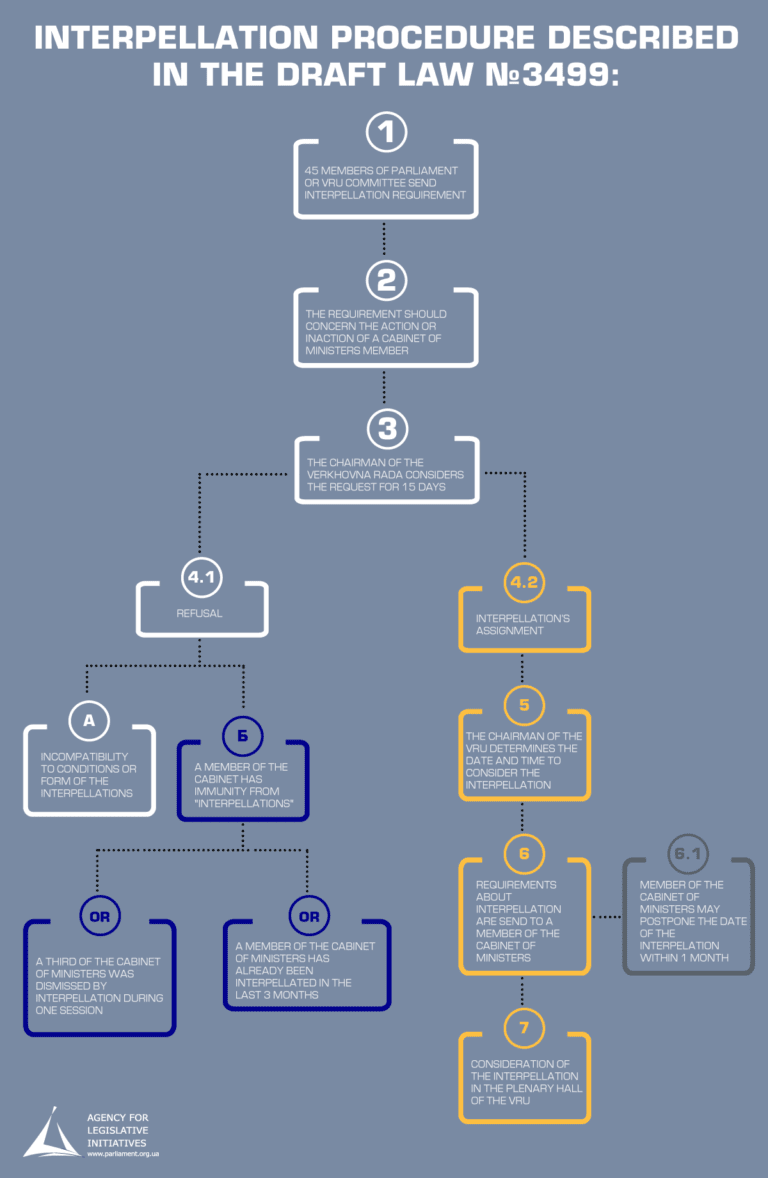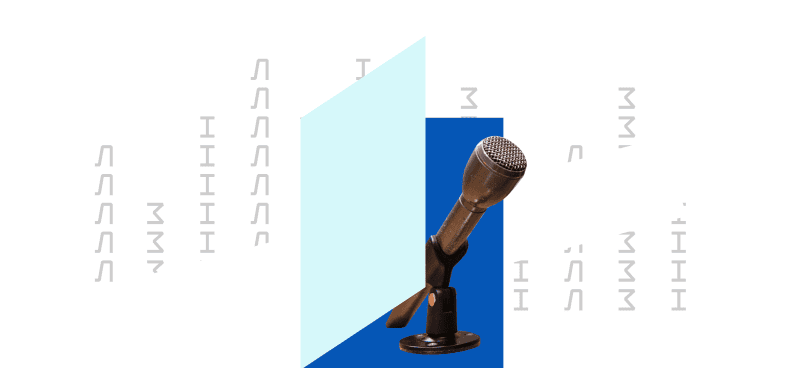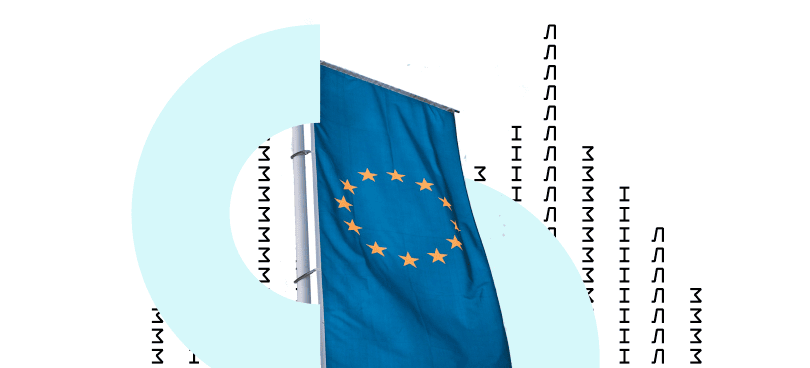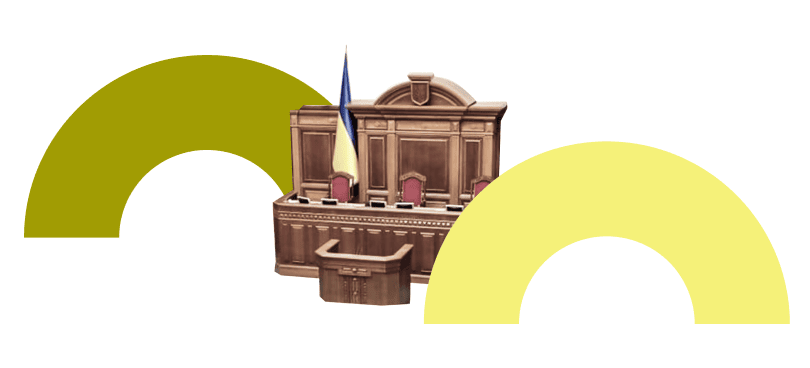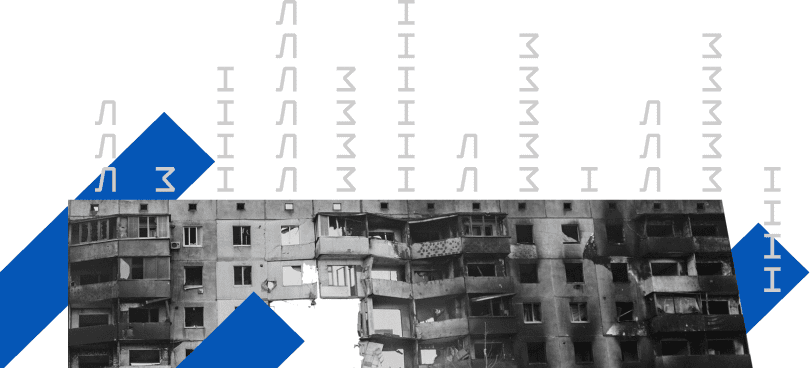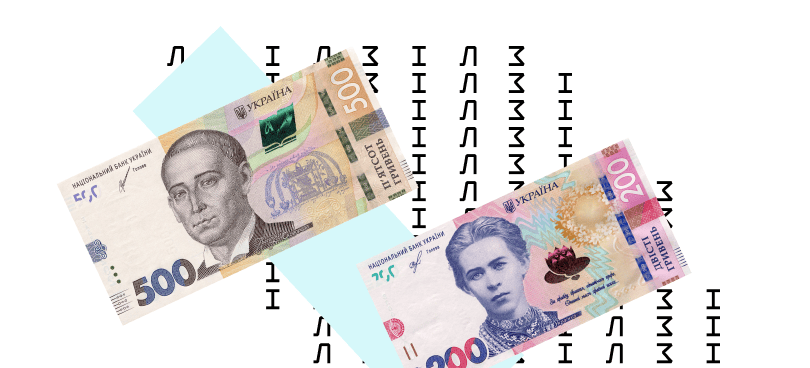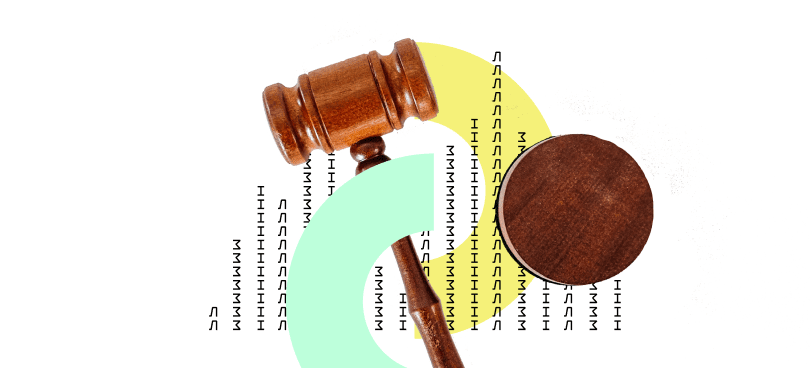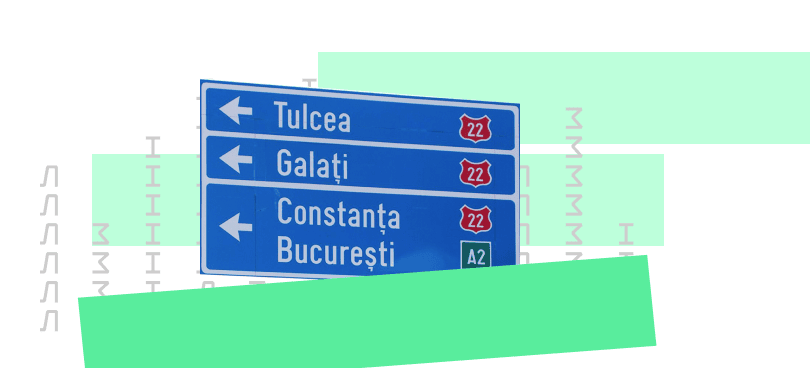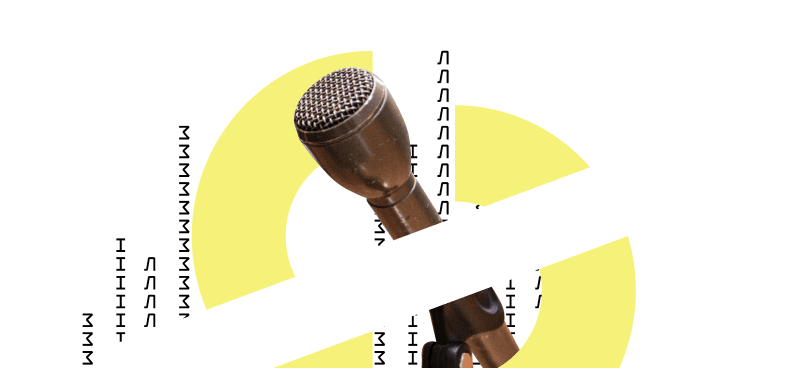The effective functioning of any public authority is impossible without establishing an effective system of control over the implementation of its decisions because the very “effectiveness of any decision depends on control”. For example, the parliament is responsible for the supervision of the activities of the executive branch. And soon the Verkhovna Rada may get more tools for this. In May, MPs registered the draft law №3499, which provides the introduction of the newest form of parliamentary control for Ukraine – interpellation.
What is an interpellation?
This is another form of parliamentary control, which is used to discuss the executive branch’s activities. In general, it can be described as follows: members of parliament have the right to invite government representatives to parliament so that government officials or one particular official can explain their policies, specific documents, or actions. Members of parliament can ask questions to government officials or debate the results of a speech by a member of the government. Sometimes, as a result of such debates, parliament can express a vote of no confidence.
An interpellation is a new form of parliamentary control for Ukraine, which was previously exercised only through parliamentary inquiries and an hour of questions to the government. The procedure of the current Rules of Procedure closest to the interpellation is the procedure of considering the answer to the MP’s request, which is established by Art. 226, but still, the interpellation procedure provides a more specific impact of the parliament on the government’s activities.
In particular, Art. 226 also stipulates that the executive branch members may be summoned to parliament (to discuss a response to an MP’s request). But we will consider the differences:
| Interpellation | Discussion of the answer at the request of the MP |
| Initiated by 45 MPs or a committee | Initiated by 90 MPs |
| Appointed by the Speaker of the Verkhovna Rada | Appointed by the majority in the Verkhovna Rada |
| Ministers or deputy prime ministers represent the executive branch. | The executive branch is represented by any official who is an inquiry addressed to. |
| Lasts about 2 hours | Lasts up to 30 minutes |
| According to the interpellation results, a member of the government receives 3 months of immunity, or the procedure of his dismissal begins. | Based on the results of the discussion, a resolution is adopted, but its content is arbitrary. |
The procedure of discussing an MP’s request requires twice as many MPs to initiate it, the decision of at least 226 MPs to appoint it, lasts 4 times less and has no clear legal consequences. However, it can apply to any official, not just members of the government.
How will the interpellation take place if the MPs pass the draft law №3499?
Considering the interpellation in the Verkhovna Rada’s plenary hall can take about two hours. It includes speeches by the MPs who initiated the interpellation and the “respondent” minister. After that, the discussion takes place in the format of questions and answers. The Prime Minister can also speak.
Based on the discussion results, the Verkhovna Rada may request some additional documents – then, a new date for consideration of the interpellation is set. If there are no additional issues, after discussions, the parliament votes to declare the work of a member of the Cabinet unsatisfactory. If less than 226 MPs voted in favor, then the work of this member of the government is considered satisfactory – and he/she receives “immunity” from interpellation for three months.
Suppose the work of a member of the Cabinet of Ministers is considered unsatisfactory. In that case, the Prime Minister must submit a motion to dismiss such a member of the Cabinet of Ministers within 15 days, or the Verkhovna Rada itself considers the issue of his dismissal.
We emphasize that the interpellation alone cannot lead to the dismissal of a member of the Cabinet. His/her work can only be considered unsatisfactory, and then a new consideration of dismissal of a member of the Cabinet and a new vote on this issue. Accordingly, it is necessary to collect at least 226 votes for the minister’s dismissal once again, after the interpellation vote.
What will the adoption of the law “On Interpellation” change?
The idea of introducing a law on interpellation is valuable. However, it is alarming that the MPs are trying to introduce an interpellation by a separate law, not through changes to the Rules of Procedure. Thus, there may be a problem of compatibility of this law with the Rules of Procedure.
And here are the likely political consequences of the adoption of this draft law:
- First, the adoption of the draft law could lead to increased parliamentary control over the executive branch. MPs’ inquiries are mostly non-public, and the hour of questions to the government is very vague, as MPs ask different questions on different topics to different ministers, while ministers mostly answer something like “did not know about this situation, we will get to it soon” or say general facts. The interpellation should focus the discussion on a specific list of issues, and this will be the subject of public attention. Finally, the interpellation consideration may result in the dismissal of a member of the Cabinet of Ministers.
- Secondly, the factions will receive a new instrument of politics implementation, part of the criticism of the government will be carried out in the form of interpellations.
- Third, there will be a strengthening of the ruling majority, which appoints the Speaker of the Verkhovna Rada, as it is the Speaker of the Verkhovna Rada, who receives the authority to moderate the interpellation process and may refuse to consider it.
- Fourth, suppose the Speaker of the Verkhovna Rada strictly adheres to the Rules of Procedure and the Law on Interpellation and accepts the interpellation initiated by the opposition. In that case, a large part of the plenary time will probably be devoted to the consideration of interpellations.

